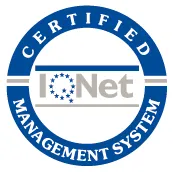
CSR integrates sustainability, workplace well-being, and reputation. Discover how to apply it to create positive impact, build trust, and grow responsibly.
Table of Contents
Corporate Social Responsibility (CSR) has established itself as a strategic pillar in an environment where consumers demand transparency, employees seek organisations with values, and regulations are becoming increasingly strict. This approach goes beyond regulatory compliance: it integrates social, environmental, and economic criteria into business management to generate a positive impact, respecting human rights and strengthening competitiveness. In this article, we explain the benefits of CSR and the actions you can take in your organisation to move towards a more sustainable and responsible model.
CSR: What It Is and Why Every Company Should Integrate It
Can a company truly be competitive without considering its social and environmental impact? This question is increasingly asked by organizations and highlights why Corporate Social Responsibility (CSR) has become a central topic in business agendas.
CSR means voluntarily integrating principles of sustainability and responsibility into daily management, beyond legal obligations. It involves orienting decisions toward creating a positive impact on society and building trust with stakeholders. As the European Commission points out, it is about how companies take responsibility for their effects on people and the environment.
Today’s context reinforces this trend. Consumers demand transparency, and sustainability regulations are becoming stricter, pushing organizations to show clear commitments. In this scenario, adopting CSR policies strengthens reputation, opens new opportunities, and makes companies more attractive workplaces because professionals perceive consistency between values and actions.
CSR also helps anticipate risks and improve community relations, both key for long-term business stability. In addition, it fosters innovation in resource management and in how achievements are communicated—two aspects that enhance competitiveness.
In this sense, the United Nations Sustainable Development Goals (SDGs) provide a global framework that guides companies in integrating social and environmental criteria into their strategies. Aligning CSR with the SDGs strengthens transparency and credibility among stakeholders.
CSR is no longer an isolated practice; it has become a strategic necessity for companies of all sizes. Integrating it into management ensures competitiveness in a market where trust and sustainability are essential for solid growth.
Benefits of CSR Your Company Can Leverage
Understanding what CSR is helps frame it strategically, but what truly convinces organizations are the tangible results it brings. Implementing CSR reveals clear benefits that reinforce both competitiveness and stakeholder trust. Let’s look at four key ones:
Attract and retain talent
CSR enhances a company’s ability to attract and retain talent. More and more people want to work for organizations where values and actions are aligned. This coherence strengthens employer branding, reduces turnover, and builds employee loyalty.
Strengthen customer relationships
CSR also shapes external perception. Managing operations responsibly builds credibility in the market. Companies that act consistently between what they say and what they do inspire trust—trust that translates into loyalty, recommendations, and preference over competitors.
Promote workplace well-being and improve internal climate
Internally, CSR fosters a healthier workplace environment. When employees feel the company cares about their well-being and surroundings, motivation and productivity rise while turnover falls—factors critical to long-term success.
Help anticipate risks
CSR plays a preventive role in risk management. Responsible policies allow companies to identify reputational risks early, respond quickly to regulatory changes, and minimize financial impacts from poor practices. In this way, CSR protects stability and prepares companies for increasingly demanding markets.
What is the difference between CSR and ESG?
CSR (Corporate Social Responsibility) is a company’s voluntary commitment to social, environmental, and economic responsibility. ESG (Environmental, Social & Governance), on the other hand, refers to measurable criteria used by investors to evaluate a company’s sustainability performance. In short, CSR is about corporate strategy and values, while ESG focuses on measurable investment metrics.
How can the impact of CSR be measured?
CSR impact can be measured through indicators such as:
CO₂ emissions and energy consumption reduction
Employee satisfaction and retention rates.
Brand reputation and customer trust.
Cost savings from efficient processes and resource use.
Alignment with the UN Sustainable Development Goals (SDGs).
Can SMEs implement CSR with a limited budget?
Absolutely. SMEs can start small with initiatives like recycling programs, hybrid/remote work to cut commuting emissions, local volunteering, or employee well-being benefits. Consistency matters more than scale—small steps lead to meaningful CSR impact.
CSR Case Studies That Inspire and Transform
Beyond theory, several global companies show how CSR can be turned into concrete strategies. Here are four noteworthy examples:
- Inditex: circularity and emission reduction
Inditex is advancing toward using lower-impact materials and increasing the share of recycled fibers. Many of its products already incorporate recycled or sustainable materials, while the company aligns its climate goals with international standards. - Danone: health and community commitment
Danone’s “Impact Journey” strategy focuses on health, nature, and communities. Initiatives include nutrition projects for vulnerable populations and internal work-life balance policies that strengthen organizational culture. - Acciona: sustainable infrastructure focus
Sustainability is at the core of Acciona’s operations across infrastructure, energy, and water management. Decisions in design, construction, and operations generate positive community impact. - Ikea: circular economy and responsible consumption
Ikea aims for 100% of its products to be made with renewable or recycled materials by 2030. It also promotes repair, reuse, and resale programs to extend product life, supporting a more sustainable consumption model.
These experiences show that CSR can be implemented through real strategies tailored to each business model. While these are large corporations, what about small and medium-sized enterprises? Many of these initiatives can be scaled up with adjustments, so that any organisation, regardless of size, can draw inspiration from these practices and adapt them to their own circumstances.
CSR Actions You Can Start Today
So, what practical steps can organizations take to move in this direction? CSR doesn’t always require big budgets—here are some accessible initiatives:
Drive sustainability and environmental care
Reduce natural resource consumption and promote efficiency. Recycling programs, renewable energy, or sustainable commuting all lower ecological footprints. Tools like Vip District’s Carpooling system encourage employees to reduce emissions while promoting responsible habits.
Promote workplace well-being and work-life balance
Supporting people is as important as supporting the environment. Flexible working hours, health programs, or staff benefits improve workplace climate and belonging. Solutions like Vip Savings enhance employees’ financial well-being, strengthening CSR initiatives.
Encourage circular economy and responsible resource use
Circular economy turns sustainability into a daily practice. From reusing materials to sharing internal resources, every action counts a when companies promote reuse among employees, reinforcing sustainable culture.
Strengthen communication and transparency
CSR requires open and clear engagement with stakeholders. Communicating progress, listening to needs, and reporting results consolidate trust. Platforms like Vip Connect make document management efficient and reduce paper use, combining sustainability and transparency.
Support SMEs with accessible measures
Implementing a CSR plan does not require a large budget. In an SME, small gestures such as promoting energy saving, encouraging carpooling among employees or organising charity campaigns with the local community can make a difference. These practices, sustained over time, strengthen team involvement and consolidate a culture of corporate social responsibility that generates visible results.
Incorporating actions of this type demonstrates that CSR is not limited to grand statements. Even with simple steps, any company can integrate social and environmental criteria into its daily management.
Moving Towards Real and Sustainable CSR
CSR has become a strategic pillar that integrates social, economic, and environmental impact into business management. Adopting CSR policies improves reputation, attracts and retains talent, strengthens customer trust, and fosters a healthier and more motivated workplace.
Taking the first steps doesn’t require huge investments. Simple actions like promoting sustainable commuting, supporting work-life balance, or reducing resource consumption deliver immediate benefits and set the stage for long-term impact.Along the way, having the right partners makes a difference. Vip District offers practical solutions to integrate CSR seamlessly and sustainably. CSR is a real opportunity to generate social value and contribute to a fairer and more sustainable future.
New to Vip District? Contact us and find out what our platform has to offer!








